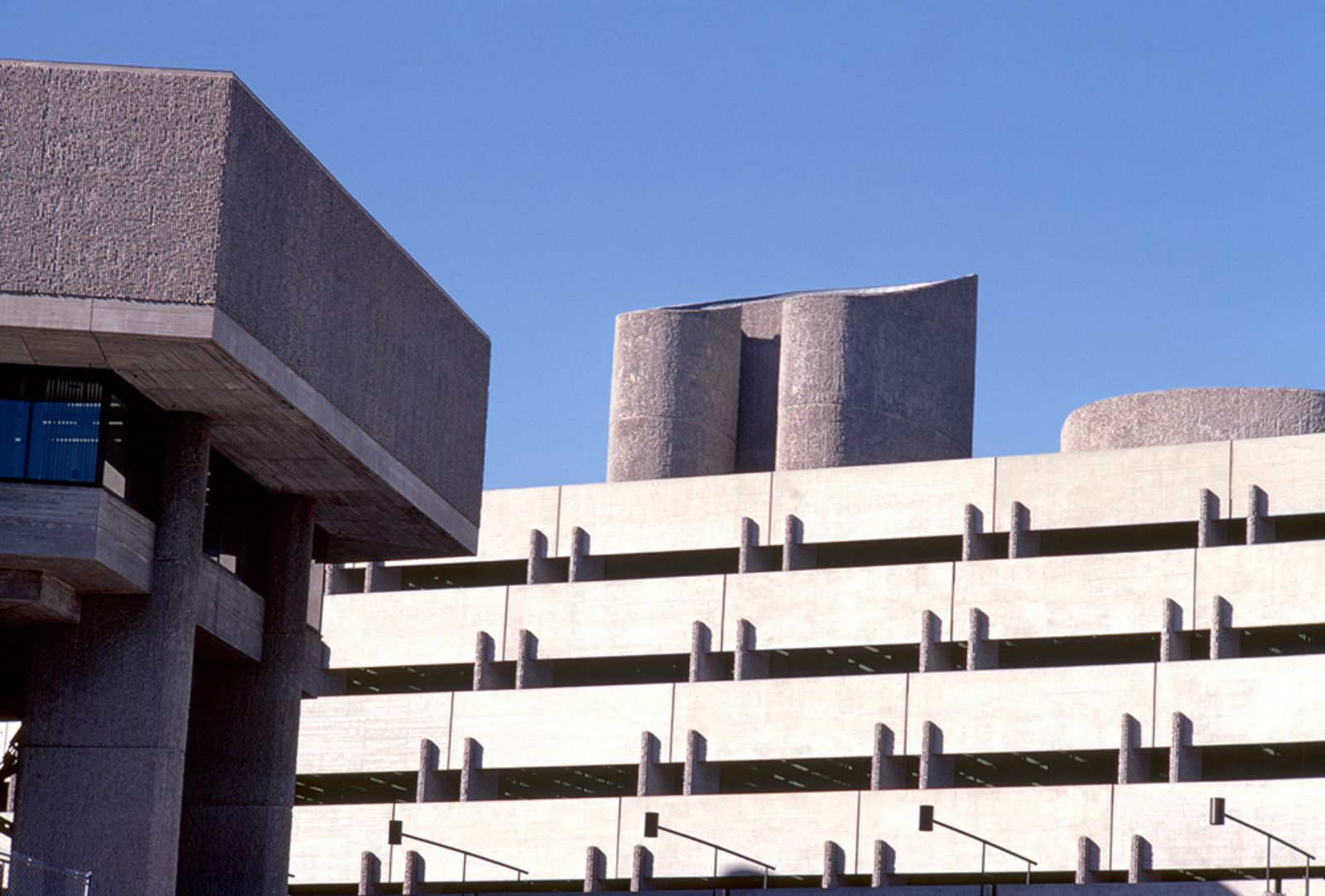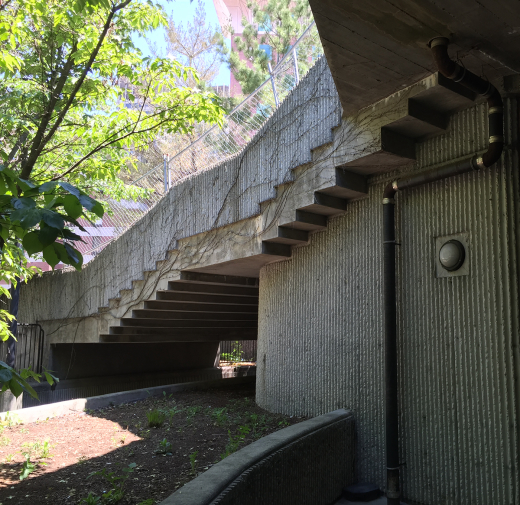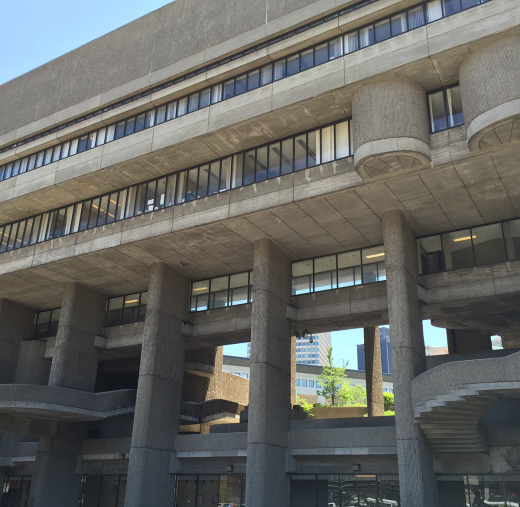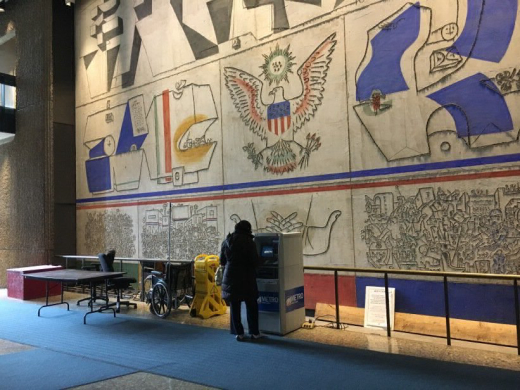Although the complex has remained in use over the years, even receiving some sympathetic updates, overall it has not been well-maintained. The city agency respsonsible for managing the building, the Division of Capital Asset Management & Maintenance (DCAMM), has laid out a proposal to ground lease the Hurley Building. A ground lease is a lease of the land only, meaning any buildings or structures on the property can be demolished, redeveloped, or otherwise. The proposal claims the redevelopment project will "acknowledge the architecturally significant elements of the Hurley-Lindemann site, while addressing its flaws." Our friends at the Paul Rudolph Heritage Foundation, who initially brought attention to this issue, have pointed out some troubling language in the proposal, and have provided counterpoints to a number of claims made in it.
Rudolph's design is dominated by the use of bush-hammered concrete, and incorporates plazas, exterior stairways, public space, seating, parking, and more, all tailored to the site. The interior features a large mural by artist Constantino Nivola, the preservation of which is also a concern. According to the proposal, DCAMM is "required to file a Project Notification Form with the Massachusetts Historical Commission (MHC)" and "will then work with MHC to develop a Memorandum of Agreement regarding future development at the site." The site is not designated a local landmark, which would provide the highest level of protection. It is not listed on the National Register of Historic Places, but in 1991 MHC determined it was eligible for listing (along with Boston City Hall).
Additional background and resources:
You can view the survey form and National Register determination letter here by clicking the purple "INV" button (a PDF will download).
View the DCAMM's page about the Hurley Building redevelopment.
The Boston Preservation Alliance, who has come out in strong support of preserving the site, has additional context, their position statement, and a detailed timeline.
Also from the Boston Preservation Alliance: read more about some of Boston's Modern Marvels.









